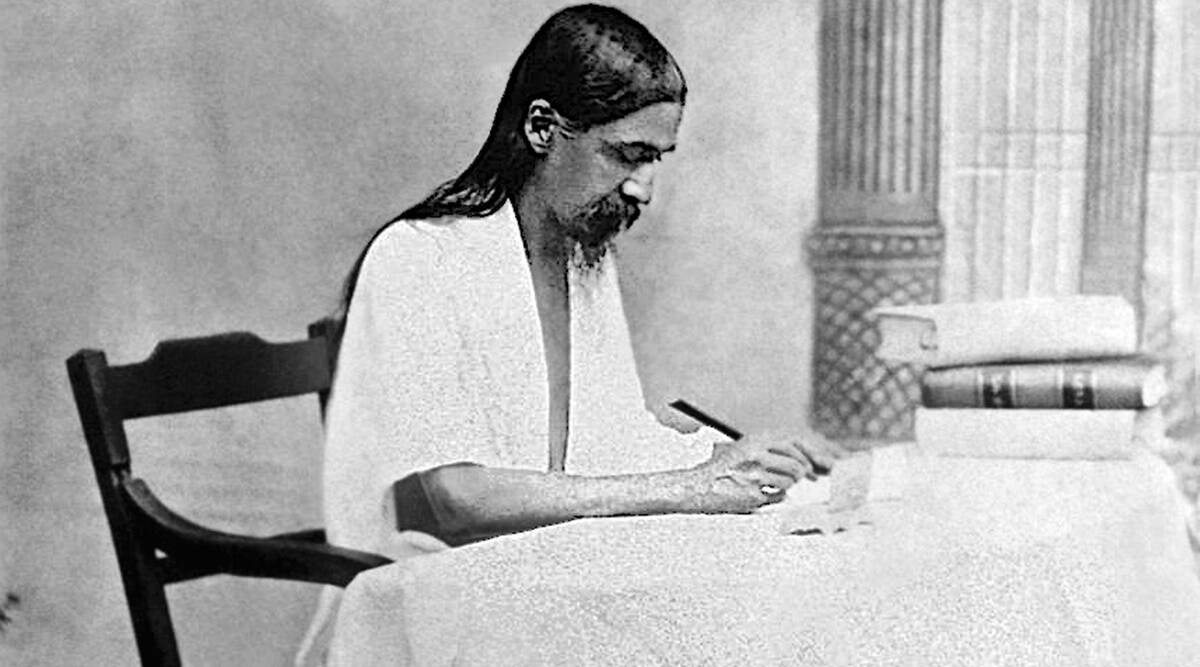‘Kavi’ does not just mean ‘poet’. In classical Sanskrit, the term was used for any maker of prose or verse. In Vedic times, it had an even simpler definition—anyone who saw and sang.
It is with this context that viewers were introduced to ‘Sri Aurobindo—The Kavi’, a webinar event conducted Friday by Sri Aurobindo Foundation for Indian Culture (SAFIC), Puducherry. The webinar was part of the foundation’s ongoing two-year-long celebrations to mark the 150th birth anniversary of Sri Aurobindo, which is on 15 August 2022.
Sri Aurobindo (born Aurobindo Ghose) was a freedom fighter and nationalist leader, who became a spiritual reformer and philosopher. Arguably most famous as a philosopher, Sri Aurobindo disclaimed the signifier and preferred to be thought of primarily as a poet and politician.
“He has written over 50,000 lines of verse,” said Dr Goutam Ghosal in his keynote address. Ghosal is a Professor of English at Visva-Bharati, Santiniketan who has studied Sri Aurobindo’s works extensively. He added, “Sri Aurobindo placed poetry at the centre of knowledge.”
Presiding over the event, Dr R Y Deshpande, author and devotee of Sri Aurobindo, explained: “Sri Aurobindo’s complete works come to 36 volumes, of which eight are devoted to poetry and poetics.”
While the ongoing celebrations include a series of lectures and seminars to popularise various domains of Sri Aurobindo’s thought, Friday’s event delved into his contributions to poetry, poetic criticism, and aesthetics. The implications in his book ‘The Future Poetry’ for the future of poetry featured prominently in the discussion.
“Sri Aurobindo said that lyric will be the future form of poetry and the spirit will decide the form,” explained Ghosal. “It cannot be prescient.” For Aurobindo, poetry was all about vision and revelation, like the Vedic kavi who saw and sang.
“Poetry occupies a special place in spiritual consciousness. It engages sight, sound and form—all senses—in a single mode of expression,” Deshpande emphasised the enduring significance of poetry in an interview with indianexpress.com.“That is what you see in our scriptures as well—they are in verse.”
Despite the allusions to the Vedas, the Upanishads and the Bhagavad Gita in Sri Aurobindo’s works, Ghosal clarified that Sri Aurobindo cannot be placed squarely in the Hindu tradition. He said Sri Aurobindo’s dharma meant not religion but a way of life. There are many Muslims, Sikhs and Christians among Sri Aurobindo’s devotees.
“His message is universal and is relevant at every time. But many don’t know his real message,” said Dr SampadanandaMishra, Director, SAFIC. “That is the purpose of these programmes: to create awareness regarding Sri Aurobindo’s teachings.”
Link to full article here: Sri Aurobindo’s poetry, a vision for spiritual consciousness

